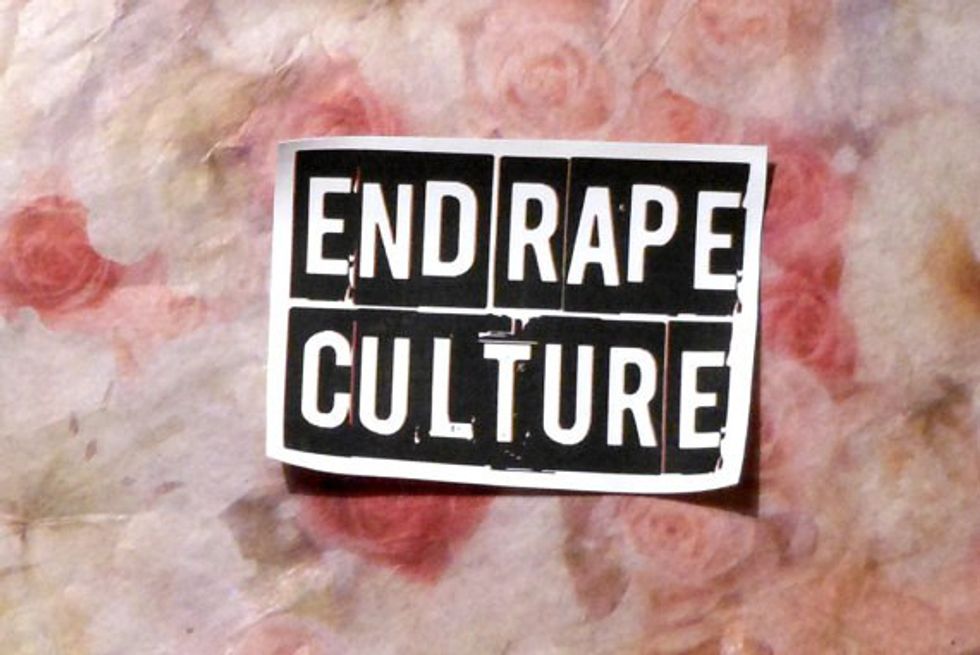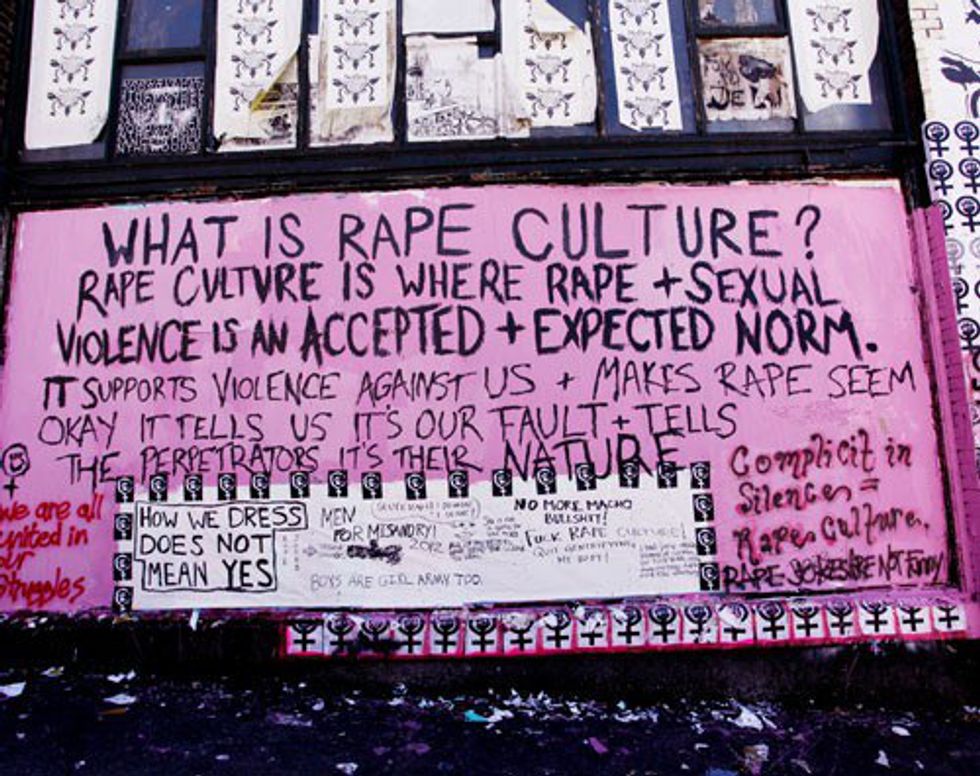(Content Warning: Rape, Sexual Assault, Rape Culture)
I'm sipping cold coffee and listening to my daughter hum to herself while she paints in the next room. Since she is female-bodied, she is, statistically, at a significantly higher risk of experiencing sexual assault in her lifetime than her male-bodied peers. I find myself ruminating on this often, especially since I've already experienced numerous assaults of varying degrees throughout my short life. In a society where rape survivors are more common than tobacco smokers, it is undeniably clear that rape culture is a profound and ever-pervasive issue. This much we do know. Rape deniers and apologists will forever blither on with their victim-blaming, slut-shaming agenda. Whether it's statements like “More than half of women and girls lie about rape” or “Feminists exaggerate rape prevalence to demonize men” or “Girls cry ‘rape’ when it’s nothing more than regret over bad sex”, such emotionally charged falsities powerfully perpetuate rape culture.
Language plays a significant part in this process of inversion of shame, responsibility, and guilt. Susan Ehrlich, in her linguistic analyses of the language of rape, consent, and the law, used the term the “grammar of nonagency” to describe how language works in favor of perpetrators.
-Soraya Chemaly
That being said, you'll have to excuse my brevity - The topic of rape is clearly enormous and, for many of us, deeply personal, but since I lack the time to go into great detail, I'll provide links to other texts and resources throughout and in conclusion. I'd also like to mention I choose to use the term survivor, but not everyone identifies with this, and it is summed up thoughtfully and effectively by Sian Ferguson. And with that, I will shine a light from my perspective on two major myths//misconceptions about rape:
1) coercion, and
2) arousal
Sexual assault can be defined by, quite literally, a kaleidoscope of unwanted encounters and experiences. Many have a very narrow definition of what rape really is and what it actually entails. An overwhelmingly common tactic on the spectrum of sexual assault is in need of open and frequent discussion, quite simply because it has more than likely happened to you or someone you love. Or perhaps you have been the perpetrator.
Sexual coercion:
Persistent attempts to have sexual contact with someone who has already said no.
To coerce, to pressure, or to persuade a non-consenting person into a sexual act is rape.
According to the Sexual Assault Prevention and Awareness Center, sexual coercion includes various tactics like, but not limited to, intimidation and manipulation without the use of physical force. These specific tactics simply replace physical violence with emotional and psychological violence, and is a cunning way for rapists to blur the lines of consent.
Some rapists do this to keep us in a state of confusion or shame, or to ensure a cycle of questioning ourselves (similar to gaslighting), and some may even do it to lessen their own feelings of guilt. Oftentimes when we hear the word rape, images of forceful struggle or dark alleyways come to mind and this is because a vast array of experiences outside that scenario have been normalized by rape culture. Like the more physically violent forms of rape, coercion is still an issue of power and control. A perpetrator using coercive tactics knows the non-consenting party neither wants nor enjoys the sexual interaction.
Which brings me to another equally important (and highly controversial) topic: arousal and pleasure. For rape deniers and apologists, arousal doesn't just blur the line of consent, it eradicates it. The idea that arousal automatically guarantees consent is a fallacy, and a dangerous one at that. The autonomic nervous system is responsible for sexual arousal – the same “reflex-driven system that underlies heart rate, digestion, and perspiration,” according to Jenny Morber in Double X Science. The pleasure response is something rape survivors are left feeling ashamed and confused about. If I felt aroused or experienced pleasure as a non-consenting person, does that mean it was actually consensual? No. It absolutely does not.
According to What Science Says About Arousal During Rape, an article published by Popular Science Magazine, arousal and rape can happen simultaneously. Our bodies are designed to react to stimuli, whether the stimuli is wanted or not. Like many common misconceptions or myths about rape, conflating arousal with conscious intention is, indeed, erroneous. If the possibility of experiencing pleasure during rape is not as uncommon as many would like to believe, what exactly does that mean for survivors and how they process their trauma? The interconnectedness of abuse and pleasure for many is a complex and multi-layered phenomenon. The confusion and shame we sit with when churning our experiences over in our minds is a reflection of the predators’ actions, not of our ourselves or our bodies.
We undoubtedly need a better understanding of human sexuality and physiology.
And with that, I remind you all: no means no means fucking NO.
cultures of consent.
consent culture.

RAINN (Rape Abuse & Incest National Network) - The most comprehensive organization for resources around sexual violence.
National Alliance to End Sexual Violence (NAESV) - This organization works to educate the policy community on ways to supports victims of sexual violence.
WomensLaw.org - Women's Law was created by the National Network to End Domestic Violence as a legal resource specifically for victims of domestic violence and sexual assault, especially for those representing themselves in court.
VINE (Victim Information and Notification Everyday) - This service allows crime victims to obtain information about criminal cases and the custody status of their offenders 24 hours a day.
The Trevor Project - A suicide prevention lifeline for LGBTQ youth.
Pandora's Project - The largest online community for sexual abuse and domestic violence survivors to chat, find resources and share their stories.
National Network to End Domestic Violence Email Hotline - An email service for personalized and anonymous support.
MaleSurvivor - A collection of resources for male survivors of sexual trauma and their partners.























